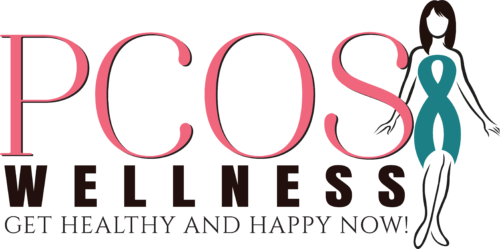- You are here:
- Home »
- Blog »
- Just For Teens »
- Teen PCOS: What You Need to Know and Do Right NOW!

Teen PCOS: What You Need to Know and Do Right NOW!
The idealized vision of teen life includes hanging out with friends, shopping for cute clothes, going out on dates, doing great at school, getting picked for all the sports teams and school plays, having lots of energy, and feeling pretty carefree. Oh, and totally owning social media!
Today’s reality of teen life may also include highly competitive sports and academics (since when is a 4.0 not nearly good enough?!), peer shaming or bullying, pre-test stress, college application anxiety, social media that leads to high levels of FOMO, and general life drama. Whew – teen years have it all! But what if it’s worse – what if you’ve got teen PCOS too?
If you’ve got teen PCOS, probably all of your emotions and symptoms are a little more intense than everyone else’s, plus you’ve got a whole host of other issues to deal with, ranging from body image issues to discrimination to fears about the future.
Body Image Issues
It’s no secret that teenage girls are obsessed with appearance. The loss of femininity with teen PCOS can be devastating. At a time when you are already hypersensitive, you may feel like you’ve got too many manly features because of teen PCOS. PCOS usually means that you’ve got stubborn weight problems (about 80% of us do), so losing weight is probably a primary focus in your life. In addition to difficulty losing weight, you might have been diagnosed with insulin resistance, and have to be on a special diet when nobody else is, and you may need prescription medication for diabetes, which is intended to reduce insulin resistance. You may even be dealing with pre-diabetes, which is pretty scary and probably even means even more food restrictions. Seeing a therapist can help you deal with body image issues. Keeping a journal may also be helpful.
Restricting Food, Over-Exercising, and Eating Disorders
If you need to lose weight to help your PCOS or insulin resistance, you’ve probably been told to eat less and exercise more. Food cravings can feel like they totally rule your life. It sounds straightforward, except it’s not when you have teen PCOS. In fact, many teens follow these instructions so well that they end up with an eating disorder like the one I had as a teen: I was eating 800 calories a day and exercising for five hours a day. I maintained body weight, but I was always starving and irritable. If you suspect that you have a problem with food or exercise, you definitely need to see a therapist who can figure out whether you have an eating disorder or not, and help you deal with it if you do.
Skin Issues
The skin problems associated with teen PCOS are legendary: acne (caused by excess testosterone), dark velvety skin on your neck and other areas, called Acanthosis Nigricans, and painful, possibly infected boils called Hidradenitis Suppurativa, that often pop up in the groin and other awkward areas. These problems can be painful, embarrassing, and quite uncomfortable, as well as difficult to treat. There is a prescription medication that can help: spironolactone (it can also help reduce hirsutism, or excess body hair).
Hair Problems
Life with teen PCOS can feel like a permanent bad hair day. Increased body hair, or hirsutism, is common among teens with PCOS. This might include a mustache, hairs in the beard/facial area, thick dark hair on your arms, hair on your back, or hair around your nipples or on your abdomen. A dermatologist can help with these problems.
Pain
The irregular periods that are a key feature of teen PCOS may also be more painful, as well as unpredictable, which can lead to awkward social situations, fear of going out, fear of participating in sports, etc. teen PCOS patients also tend to have more endometriosis, which is an overgrowth of tissue around the reproductive organs in the abdomen. This can contribute to irregular bleeding patterns, pain, and gastrointestinal issues. Birth control pills are the most commonly prescribed medication used to treat irregular periods, but they don’t fix the underlying problems, which can only be managed through lifestyle. If you regularly have pain, a daily meditation practice can be helpful for self-management without resorting to over-the-counter painkillers.
Too Many Doctors
In addition to your pediatrician (a doctor who treats children and teens exclusively), you might need to see a gynecologist about your period, a dermatologist for hair and skin issues, or an endocrinologist, who deals with PCOS, insulin resistance, thyroid issues, etc. You may also find yourself dealing with your first pelvic exam, more frank talk about birth control than you ever wanted to hear, and a lot of stress associated with missing school, not feeling well, having to take medication regularly, having to get blood draws, etc.
Mood Swings
Teens and women with PCOS have a lot more mood issues, like anxiety and depression, and sleep problems too. Since your body and hormones are always out of balance and trying to re-regulate themselves, you may feel fatigued a lot more than the average teen does too. And pain issues related to your period or normal injuries or overuse may feel worse because your body has higher levels of inflammation. Pay close attention to your body, don’t be embarrassed to take naps when you need them, and try hard to get at least eight hours of sleep per night.
Stigma and Discrimination
Sadly, despite an increasingly vocal size acceptance and body positivity movement, there’s still a lot of size discrimination, body shaming, fat shaming, and abuse directed toward anyone who doesn’t look average. The typical weight gain associated with PCOS, differently shaped breasts, hair and skin problems, may all bring you unwanted negative attention. Combat body shaming and bullying immediately and aggressively, with the help of your parents and school officials. There is never any excuse for making anyone feel bad about their body. There’s also a lot of stigma associated with having a disease, especially if you have a mental health issue like anxiety or depression. It shouldn’t be this way, but as long as it is, you’re going to need plenty of support from friends, family, and your school. See out positive people, and focus on maintaining a positive attitude as much as you can.
Fears About the Future
You’re young. There’s a lot of future ahead of you. You may worry and wonder what it’s going to be like when you’re dating, trying to find a spouse or have children (because by now you know that you will likely have difficulty getting pregnant), or even get a job. You worry about having your anxiety or depression get worse, or gaining more weight, or never being comfortable in your body. All of these concerns are legitimate. As they say in sports, the best defense is a good offense. Learning all you can, getting the right food, exercise, and sleep for your body, and developing good social support are all things you can do right now.
Social support boosts mental health, by the way! Please join my new Facebook group, PCOS Wellness for Teens. It’s private, and it’s a safe place to talk about what’s on your mind.
Session expired
Please log in again. The login page will open in a new tab. After logging in you can close it and return to this page.
